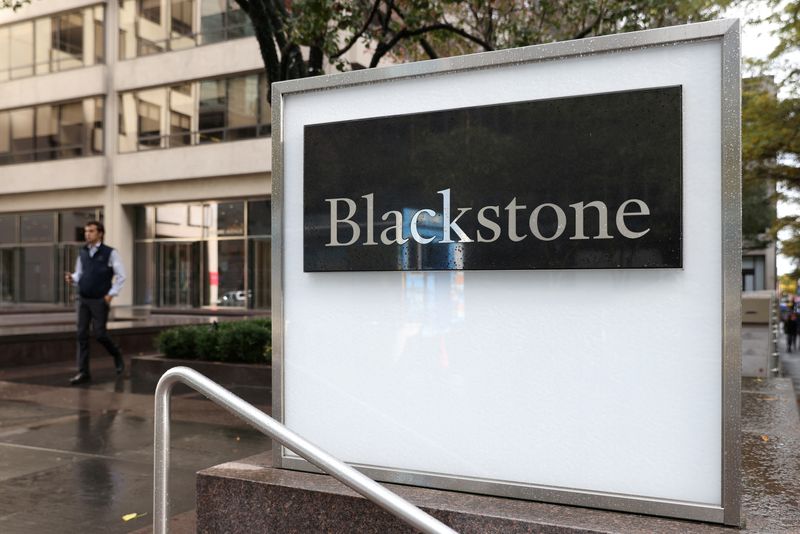By Nell Mackenzie
LONDON (Reuters) - Credit funds at Blackstone (NYSE:BX), Apollo, DZ Bank and Astra Asset Management picked up bargains from UK pension funds during their scramble for cash, and some say pension schemes are still offloading assets as pressures persist.
British defined benefit pension funds were caught up in market turmoil in September caused by UK government plans for unfunded tax cuts, forcing them to sell assets quickly to raise cash.
Nearly two months on the defined benefit pension funds, which pay pensions benefits at a fixed level, continue to scramble for cash to top up balance sheets gaps and meet collateral calls on their liability driven investments.
These so called LDI derivatives were meant to shield the funds against higher interest rates, but became too costly after the radical tax-cutting plans of former Prime Minister Liz Truss's government sent British government bond yields soaring in late September.
Some collateral requirements have tripled since the UK government bond sell-off, forcing pension schemes to keep selling assets to find cash, pensions consultants say.
Hedge funds and private equity firms have taken advantage of the forced sales to snap up deals - including certain portions of collateralised loan obligations (CLOs), securities that pension funds invest in.
The credit funds are already sitting on juicy profits on some of these trades. Spreads on the top-rated "AAA" CLO tranches have tightened, based on pricing described by Union Investments and Astra Asset Management, indicating that funds could make money if they sold them back into the market.
CLOs are securities backed by a pool of loans taken out by companies with high levels of debt and typically a non-investment grade credit rating. The majority of CLO deals are transacted in over the counter trading.
The biggest discounts occurred at the height of the LDI crisis but prices on the CLO tranches have recovered somewhat, said Alexander Ohl, a senior portfolio manager at asset manager Union Investments, the investment arm of DZ Bank group in Frankfurt. Ohl confirmed that his fund had purchased A-rated CLO tranches at a discount.
"All of this selling interest found interested buyers, meaning demand is there at these wider levels," said Ohl.
"We continue to see from pension funds, a consistent liquidation in the CLO market, though it is a lot more orderly now than it was during the height of the LDI crisis," said Anish Mathur, the chief investment officer of Astra Asset Management, who said his firm had purchased CLO tranches at a discount.
Mathur, who manages $419 million, said what made selling of CLOs beneficial to pension funds was that the sales only came with a 10% to 15% discount. During the height of the firesale, other market participants described discounts of 60% to 70% on 30-year UK government bonds.
"If they had gone into fixed income - they'd have been completely decimated," he said.
Jonathan Gray, the chief operating officer of Blackstone, said in the company's third-quarter results presentation that the private equity firm had bought up CLO paper sold by pension funds during the height of the crisis.
Scott Kleinman, co-president at Apollo Global said CLO trading volume skyrocketed to 800% above average levels and during that time, its annuities provider arm, Athene, purchased $1.1 billion of AAA and AA CLO tranches.
Even though defined benefit pension fund sales of CLO tranches carried a small discount relative to UK government bonds, this will still leave a gap in pension fund balance sheets requiring more cash or an equivalently valued investment.
This is because these pension funds must match their portfolios to what they will owe retired members.
Raj Mody, global head of retirement consulting at PwC, said this was why the selling of CLO paper has continued.
"It's a mere two months since the height of market stress for these funds. Even though the markets have calmed, some pension funds are still dealing with the implications," said Mody.
